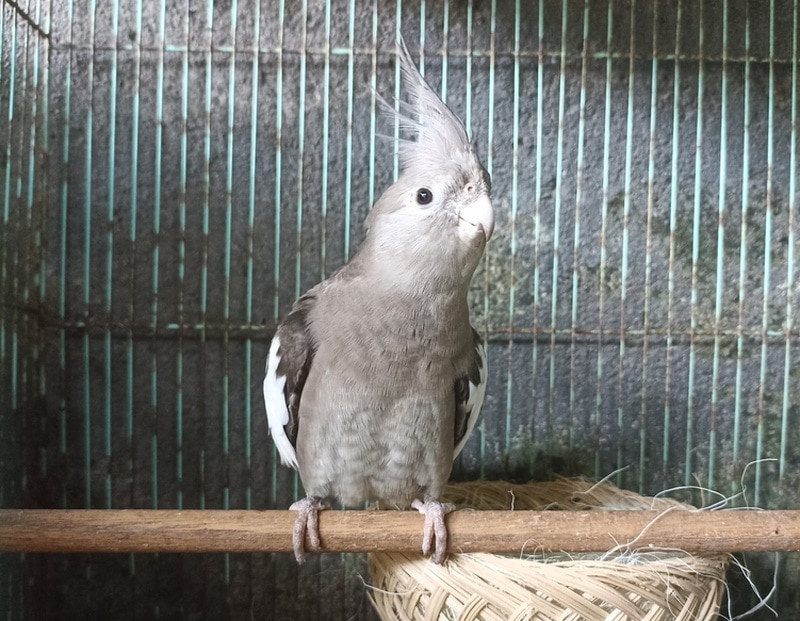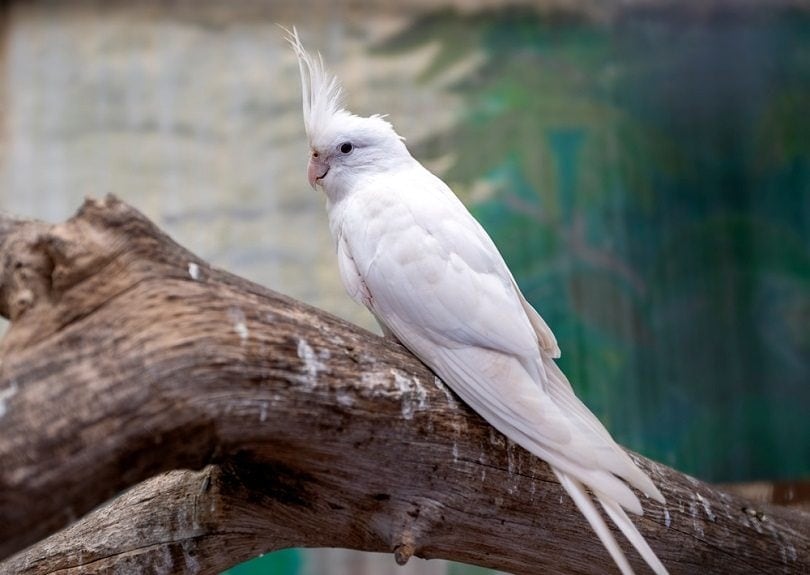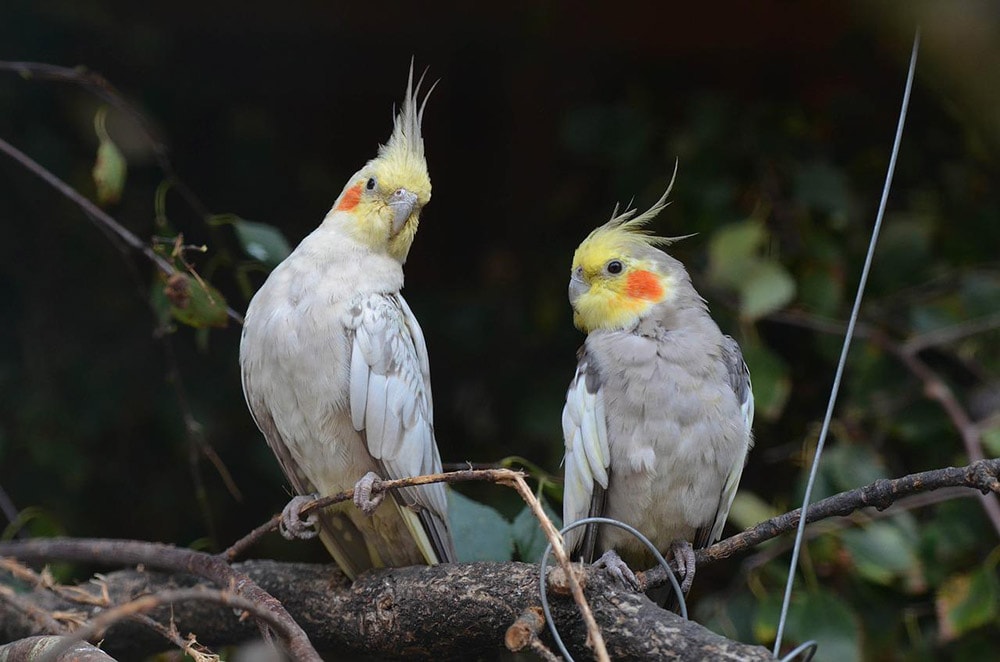Do Cockatiels Bite? Vet-Reviewed Reasons & Tips to Stop It

Updated on
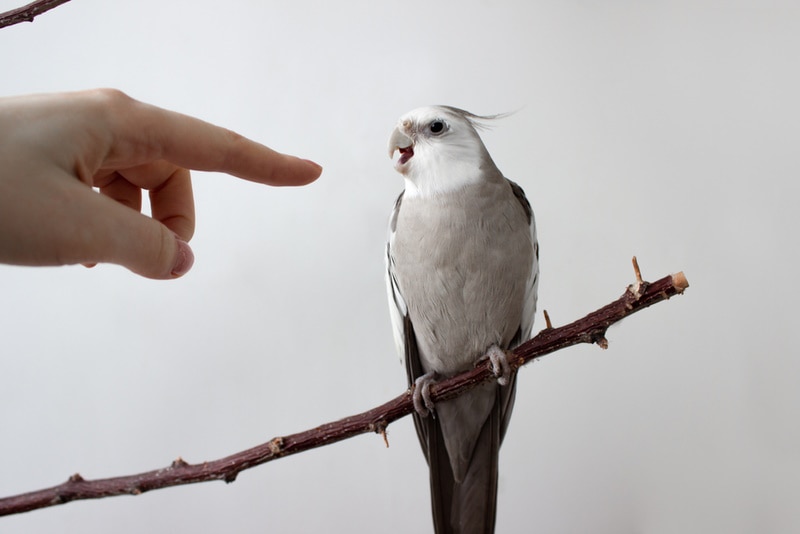
Cockatiels often rely on body language or sounds to communicate with their humans. They can’t verbally tell you to stop making noise while they’re trying to sleep, and they can’t verbalize their agitation at having their dinner taken away. They can screech, hiss, and potentially even nip or bite at you with their beak, however, so an otherwise perfectly placid and pleasant cockatiel may possibly nip or bite you for several reasons.
It doesn’t mean that the bird has suddenly turned aggressive and it isn’t necessarily being aggressive in this instance, but it does mean that you should determine the cause of the action and take steps to remedy the problem.
Below, we look at the possible reasons that your cockatiel might have bitten
Cockatiel Bites
Cockatiels are known for being affectionate and friendly birds, but this is a generalization. Every bird is different, and birds, just like people and other animals, can have off days when they act out of character. They have the ability and capability to bite, and although their curved beak usually doesn’t break the skin, it can definitely hurt. It can take you by surprise if you aren’t expecting it.
The 7 Common Reasons Your Cockatiel Is Biting
1. Not Used to Handling
Be aware that while many cockatiels like being handled and enjoy the interaction that occurs between them and their humans, this isn’t true of all cockatiels. Those that have been deprived of interactions with humans and have never been handled don’t know how to react and may view people as a threat. In this case, biting is likely to be common.
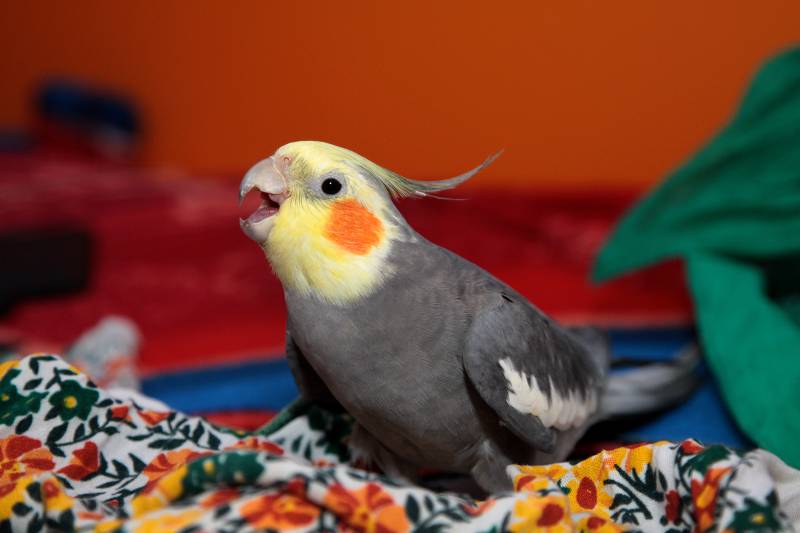
2. Being Possessive
Cockatiels can be possessive over various objects and even people. They can claim ownership of their cages, toys, or even just a box they have taken a fancy to that day. In these cases, your cockatiel might be nipping your finger because it views you as a threat to their territory. At times, they may do this almost as a playful tantrum. This is particularly true of younger birds that are still learning their place within the home.
3. A Hormonal Response
At certain times, cockatiels are driven by their hormones. This is most common during the breeding season. When kept as pets, the constant exposure to light everyday can send their hormonal cycle into overdrive, and they may be overstimulated and resort to nipping and biting.
4. Fear
If your cockatiel is biting you out of fear, it warrants a closer examination on your pet’s history. Most cockatiels that bite out of fear have had negative interactions with people in the past and are conditioned to bite out of fear. In such an instance, the services of a professional trainer might be necessary.
At other times, your cockatiel might simply bite you if they’re startled. This is especially true if you startle them when they’re asleep.
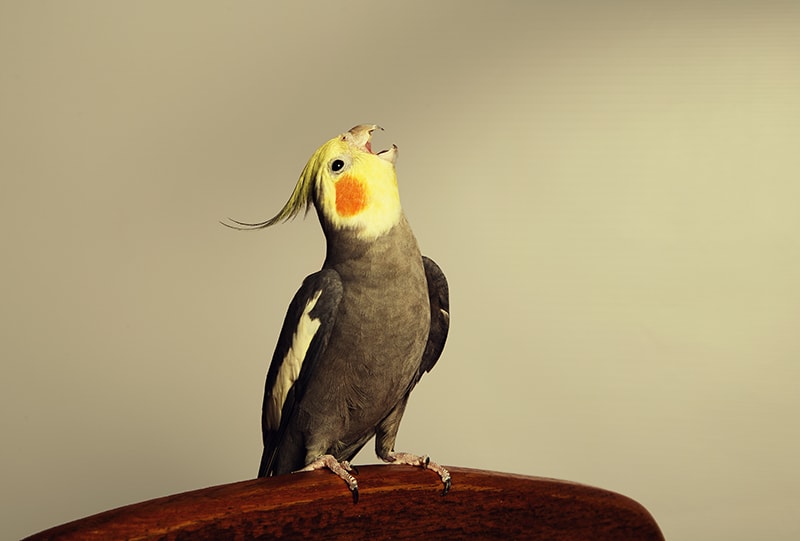
5. Bites Have Been Encouraged
Cockatiels are intelligent little birds and they learn in much the same way as dogs. If you encourage certain actions, even if inadvertently, then the bird will repeat these actions. If you have encouraged your cockatiel to nip and bite your finger in the past, and you have encouraged it with a positive reaction or with a treat, the bird will likely repeat the action.
6. Nest Guarding
During the breeding season, both males and females may show signs that they aren’t interested in interactions with you and are more interested in finding a nest box and guarding it.
The parental roles of guarding the nest by standing in front of its entrance, incubating the eggs, and feeding the hatchlings are shared among both the male and females. Therefore, either sex may resort to biting during the breeding season.

7. Underlying Illnesses or Pain
A cockatiel that’s in pain or suffering from an illness may bite simply because they’re in pain and too uncomfortable. At times, biting or nipping is one of the earliest subtle signs that something is awry. Like many birds, cockatiels will instinctively try to mask illnesses as long as possible, and most birds that show outward signs of illness are at a point where they’re too unwell to mask their ailment.
If your intuition suspects that your cockatiel’s bites might be due to a health issue, it’s best to seek veterinary input on the matter.
The 4 Ways to Stop Cockatiel Biting
1. Don’t Encourage It
When training your bird, it is important to not reinforce bad behavior, such as a nip or a bite. This may inadvertently teach your bird that it’s okay to do so, and they may assume it’s a good thing to bite people.
It is just as important to not use negative reinforcement or to punish a parrot if they attempt a bite. Instead, you should simply end the interaction with your pet with a calm but stern “No”, and momentarily leave them to themselves by leaving the room.
2. Read Cues
Don’t ignore cues, such as your bird backing away and trying to get out of your way. When a parrot is about to bite, they will fluff their feathers up slightly and pin their iris before lunging in to bite.
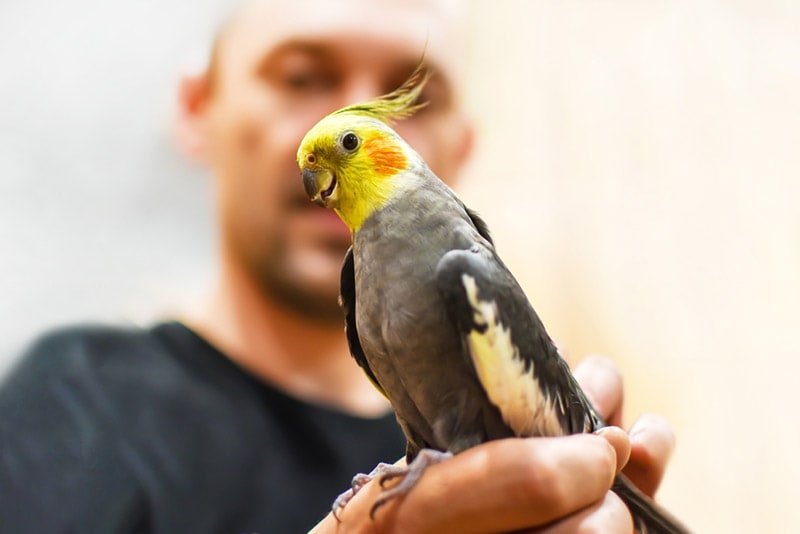
3. Don’t Shout
Cockatiels associate sound as a positive interaction and aren’t necessarily deterred by a scream. In fact, they may think it’s a good thing, as it’s gotten your attention, and if a bite encourages a scream, they will quickly learn to repeat the action. It is also important to note that the vocal repertoire of parrots is very impressive, and they can easily win a screaming match with a human.
4. Seek Professional Input
At times, it might just be too difficult to pinpoint the underlying cause of your cockatiel’s biting antics. At other times, the cause might be known, but re-training your cockatiel might be too difficult. In such instances, professional help from a veterinarian and a parrot trainer might be warranted. Remember that even an apparently normal looking cockatiel may have an underlying health issue that is causing them to bite.
Do Cockatiel Bites Hurt?
Cockatiel bites can definitely hurt. Like all parrots, they have very well-developed jaw muscles, which makes their bite force exceptionally high in relation to their size. This is because their beak is used for climbing, grip, chewing, and cracking open seeds.

Treating a Cockatiel Bite
The best way to treat a cockatiel bite is to wash the area with warm water and soap before letting it air dry. Examine the skin for any breakage. If you notice a break in the skin, apply a disinfectant or an antibiotic ointment and cover it with a band-aid. As bites from birds can sometimes lead to infection, it is best to seek a medical opinion from your doctor.
Final Thoughts
Generally, cockatiels are affectionate, friendly, and amiable little birds that will get along well with their humans. But even the friendliest cockatiel might bite under certain conditions.
Determining the cause of the bite is key to curbing the behavior. Remember that, at times, you would need professional assistance to ensure that your cockatiel isn’t dealing with an underlying health issue and biting out of pain or discomfort.
Featured Image Credit: wowdash, Shutterstock



